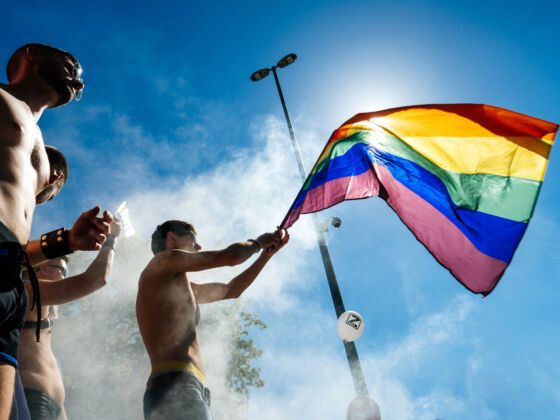Sometimes, increased visibility has a price. Just ask my friend Maxime, who has a 12 cm scar sliced across his head. Three years ago, Maxime was walking in Paris when a man came at him with a box cutter, shouting that he was a “sale pédé”, French slang for a “dirty fag.”
As emergency personnel rushed Maxime to the hospital, he heard one say: “I mean, what did he expect? He’s carrying a handbag.”
